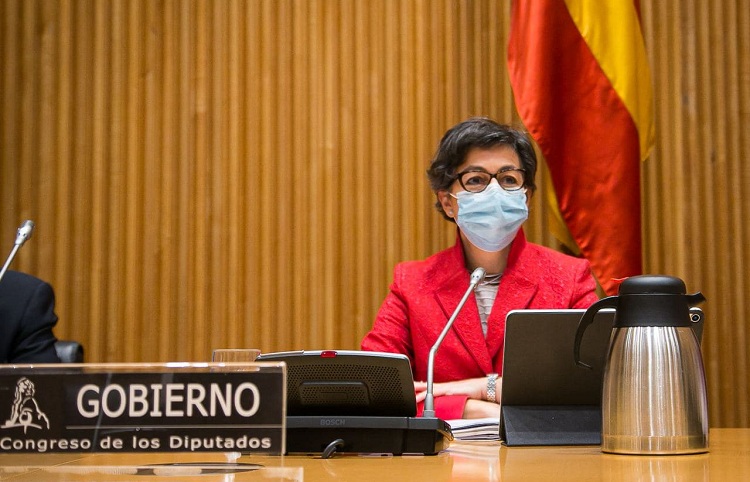Luis Ayllón
The Council of Ministers will foreseeably agree tomorrow, Tuesday, to send to Parliament the new Foreign Action Strategy for the next four years, as The Diplomat has learned from reliable sources.
The document will replace the Foreign Action Strategy approved in 2015 and which should have been renewed in 2019. The holding of electoral processes throughout that year and, subsequently, the situation created by the COVID-19 pandemic have delayed the drafting of a text that is intended to serve as a framework for Spain’s foreign action in the period 2021-2024.
In principle, unless there are last minute changes, the Council of Ministers will agree tomorrow to submit the text to Parliament, in compliance with the provisions of the Law on Foreign Service and Action, so that it can be debated by deputies and senators, although it will not be put to a vote.
The intention, it seems, is that in mid-February, the Minister of Foreign Affairs, Arancha González Laya, will explain the document to the parliamentary groups in the corresponding Commissions of the Congress of Deputies and the Senate and that, afterwards, the text will return to the Council of Ministers for its definitive approval of the Foreign Action Strategy. The intention is to have the document ready by the beginning of March.
The document has been prepared by the Ministry of Foreign Affairs, under the coordination of the State Secretariat of Global Spain, whose head is Manuel Muñiz; and more specifically by the Directorate General for Strategy, Prospective and Coherence, headed by Federico de Torres Muro.
The sources consulted indicated that the preparation of the new Strategy has involved the participation of the rest of the Ministries, constitutional bodies, autonomous communities, companies, trade unions, non-governmental organizations and think tanks.
The new External Action Strategy will reflect the consequences that the pandemic is having worldwide, especially its impact on a certain loss of confidence in the institutions, as well as the technological, socio-economic and ecological fractures that are being observed worldwide.
The document makes, according to the same sources, a clear commitment in favor of more Europe, also taking into account the situation after the exit of the United Kingdom from the European Union. It also advocates a greater involvement of the EU in external action, and takes into account relations with countries as active at this time as Russia or Turkey.
In addition, it reviews, maintaining an argumentative thread, Spain’s interests in different geographical areas, such as Latin America, the Mediterranean, the Maghreb, the Middle East, Sub-Saharan Africa and Asia.
Among the latest inclusions made in the text are those related to the change of Administration in the United States, following the departure of Donald Trump and the arrival of Joe Biden to the White House. In this scenario, Spain sees the new scenario as positive and trusts that relations with Washington will be strengthened and that the transatlantic link will be reinforced.
Spain, which considers itself a middle power with global projection, defends multilateralism, strategic bilateralism and solidarity through cooperation instruments in its new Foreign Action Strategy. It also advocates an active human rights policy and “climate diplomacy”.
The document also incorporates the role that social actors (companies, NGOs, think tanks, etc.) as well as different institutional organizations can play in Spain’s external projection.






